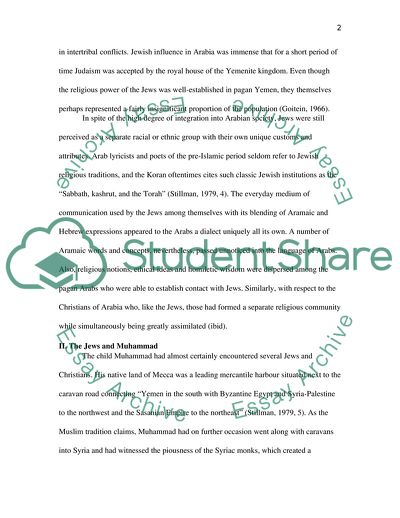Cite this document
(Was Muhammad Influenced by the Jewish Communities of Arabia Coursework, n.d.)
Was Muhammad Influenced by the Jewish Communities of Arabia Coursework. Retrieved from https://studentshare.org/religion-and-theology/1717658-was-muhammad-influenced-by-the-jewish-communities-of-arabia
Was Muhammad Influenced by the Jewish Communities of Arabia Coursework. Retrieved from https://studentshare.org/religion-and-theology/1717658-was-muhammad-influenced-by-the-jewish-communities-of-arabia
(Was Muhammad Influenced by the Jewish Communities of Arabia Coursework)
Was Muhammad Influenced by the Jewish Communities of Arabia Coursework. https://studentshare.org/religion-and-theology/1717658-was-muhammad-influenced-by-the-jewish-communities-of-arabia.
Was Muhammad Influenced by the Jewish Communities of Arabia Coursework. https://studentshare.org/religion-and-theology/1717658-was-muhammad-influenced-by-the-jewish-communities-of-arabia.
“Was Muhammad Influenced by the Jewish Communities of Arabia Coursework”. https://studentshare.org/religion-and-theology/1717658-was-muhammad-influenced-by-the-jewish-communities-of-arabia.


